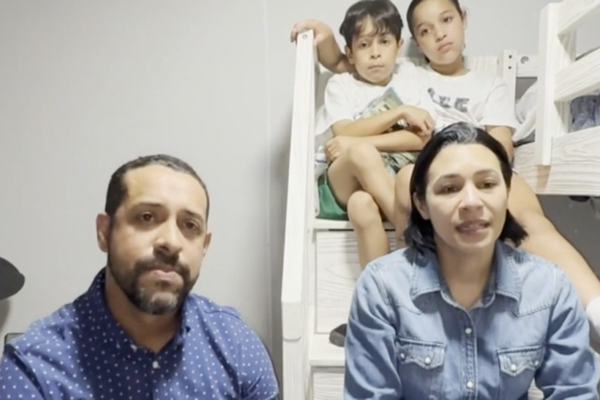
Losing a parent is one of the hardest experiences we go through, and the process of sorting through their belongings can feel overwhelming, emotional, and, at times, even painful. Many people opt to donate or toss everything just to “get it over with,” but that approach can lead to regret, missed opportunities, and even financial loss. Before you clear out the attic or box up the kitchenware, it’s important to slow down and consider why every item might hold more than just clutter. Here’s why you should resist the urge to simply throw out your parents’ things without taking the time to go through them thoughtfully.
Why You Shouldn’t Throw Out Your Deceased Parents’ Belongings
1. Hidden Financial Value
One of the biggest reasons not to rush through your parents’ belongings is the potential for hidden financial value. Many families have discovered that old collectibles, vintage toys, rare books, or antique furniture can be worth a small fortune. Jewelry boxes often hold more than costume jewelry. There may be pieces made of gold or silver or containing precious gems that were overlooked.
Even everyday items like coins or stamps can sometimes be surprisingly valuable to collectors. By carefully examining each item, you can separate valuable keepsakes from things that might be better off donated or sold. Throwing things away without checking could mean discarding thousands of dollars in hidden wealth.
2. Sentimental Keepsakes You Didn’t Know Existed
Grief can cloud your judgment and make you want to clear out everything in a hurry just to avoid dealing with the pain. But many of your parents’ belongings might hold deep emotional meaning, even things you didn’t know existed. Old letters, handwritten recipes, family photos, or small trinkets can become powerful links to your parents’ lives and personalities.
These mementos can bring comfort in the years to come, and some may even become cherished heirlooms for future generations. Taking the time to sift through belongings allows you to preserve pieces of your family’s story that can never be replaced.
3. Important Legal or Financial Documents
It’s easy to overlook paperwork when you’re sorting through boxes, but hidden among your parents’ belongings might be important documents you’ll need. This could include wills, life insurance policies, bank statements, property deeds, or even tax documents. These papers can help settle the estate, distribute assets properly, and protect you from future legal or financial headaches.
Tossing everything without checking could make it difficult, or even impossible, to access money or property you’re entitled to. Before getting rid of anything, set aside time to thoroughly search for documents that may be essential to closing out your parents’ affairs.
4. Family History and Heritage
Your parents’ home might be a time capsule full of family history that can deepen your understanding of your heritage. Diaries, family trees, military medals, and old photos often reveal stories you never knew about your parents’ lives. These items can connect you to relatives you’ve never met or help you understand where you come from. They can also be invaluable if you ever decide to research your genealogy. Throwing things out without looking means potentially losing a tangible link to your family’s past—something that can’t be bought or replaced.

5. Avoiding Family Conflicts
When you’re dealing with grief, the last thing you need is a fight with siblings or other relatives over who gets what. By thoughtfully sorting through your parents’ belongings, you can identify items that may be meaningful to others and distribute them fairly. This process helps avoid misunderstandings and resentment that can arise if someone feels excluded or overlooked.
Simply donating or tossing everything can lead to deep family rifts that might never heal. Taking the time to go through things with care ensures everyone feels respected and included in honoring your parents’ legacy.
6. Eco-Friendly Disposal and Donation Opportunities
Many of your parents’ items might still be usable or recyclable, but only if you sort through them properly. Furniture, clothing, kitchenware, and even electronics can be donated to charities, shelters, or local families in need. Tossing everything into a landfill not only wastes resources but also harms the environment.
By carefully sorting through belongings, you can identify what’s salvageable and ensure items get a second life. This approach is not just environmentally responsible. It’s also a meaningful way to honor your parents by helping others.
7. Learning More About Your Parents
Going through your parents’ things can be like reading the final chapters of their life stories. The books they read, the hobbies they loved, and the notes they left behind can reveal insights about who they were and what mattered to them. It’s an opportunity to learn about their dreams, struggles, and everyday moments you might have missed.
These discoveries can bring you closer to them, even after they’re gone. Simply discarding everything means losing the chance to understand your parents on a deeper level, something you might regret later.
8. Honoring Their Legacy
Finally, taking the time to sort through your parents’ belongings is a powerful way to honor their legacy. It shows respect for the life they built and the memories they created. It also allows you to decide what best represents their story and how to share it with future generations. By preserving certain items and thoughtfully letting go of others, you can keep their memory alive in a way that feels meaningful and personal. Throwing everything away might seem easier, but it can also feel like erasing a part of who they were.
It’s Worth Taking The Time
Sorting through a parent’s belongings is never easy, but taking the time to do it right can bring unexpected rewards — financial, emotional, and spiritual. Instead of tossing everything out in a rush, consider what you might find and what it could mean for you and your family.
Have you ever discovered a hidden gem or family secret while going through a loved one’s things?
Read More:
Deceased Debt: Here’s How to Make It All Go Away
10 Organizations You Should Contact Immediately After Your Spouse Dies







